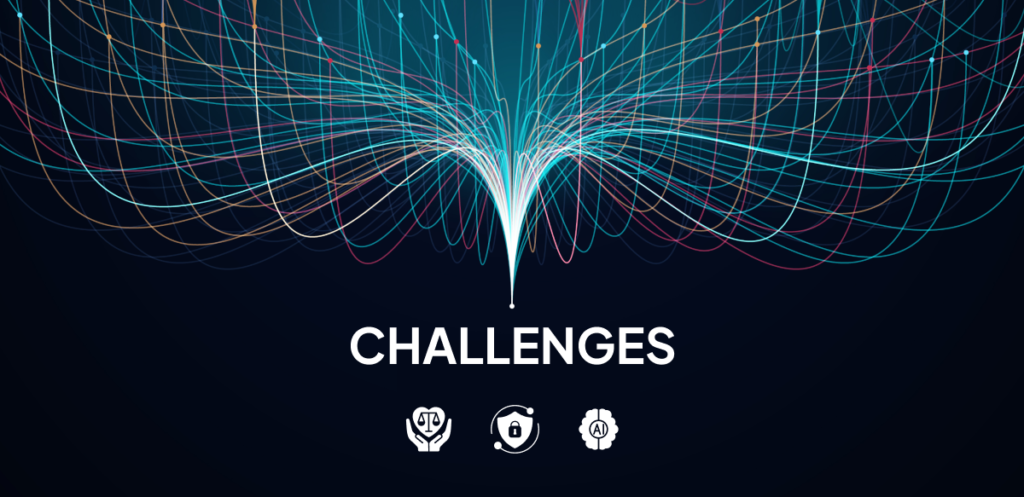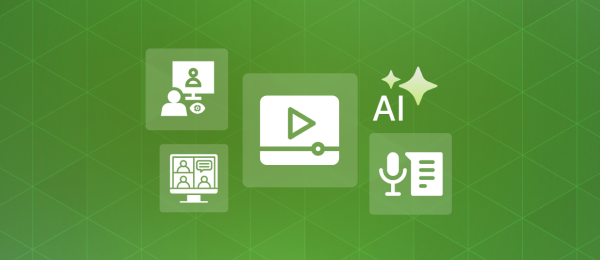The Impact of Artificial Intelligence on Hiring Processes and Decision-making
The outlook of recruitment has changed in recent years. With strained job markets, increased competition for top talent, and rapidly changing candidate expectations, hiring teams are expected to deliver fast, accurate, and inclusive hiring outcomes. To meet these demands, Artificial Intelligence (AI) integration and automation into hiring workflows have become critical.

The growing adoption of AI in Human Resources is not just about improving speed, but about optimizing accuracy, consistency, and data-driven decision-making. Technologies such as Applicant Tracking Systems (ATS), Video Interviewing and Screening Platforms, Human Resource Information Systems (HRIS), and conversational AI tools are now standard in modern hiring pipelines.
AI in the Hiring Process
A mismatch between job requirements and candidate profiles, unconscious bias, and high drop-off rates continue to be persistent issues in the hiring process. In turn, AI technology is positioned to address these inefficiencies and bottlenecks with algorithmic precision and data-backed logic.
Candidate Matching
AI-driven matching systems, integrated within Applicant Tracking Systems (ATS) or standalone platforms, can analyze resumes, extract relevant data, and align them with job descriptions. AI models, particularly those based on deep learning, analyze unstructured text to draw information about job titles, skill keywords, years of experience, and certifications. This reduces manual resume screening and filters out qualified candidates faster.
AI Assistance in Video Interviews
AI-powered video interviewing platforms like Jobma offer live and recorded interviews with embedded intelligence. These systems utilize smart proctoring to flag anomalies such as impersonation or off-screen activity. Additionally, automatic transcription and keyword tracking offer structured and bias-mitigated evaluations. AI analyzes the interview attributes, like subject knowledge, multiple faces present in the video, and speech proficiency, to provide a comprehensive candidate intelligence outlook. All candidates are analyzed on a common set of parameters to promote standardization and fairness.
Conversational AI and Support Bots
Virtual assistants and AI bots are now embedded in many career portals and HRMS platforms to reduce dependency on manual support. AI support models are trained to handle routine queries and FAQs like “How do I reset my password?”, “What’s the interview format?”, or “When will I hear back?” without requiring an active agent behind the screen around the clock.
Not only this, these tools are especially resourceful in helping candidates apply and prepare for jobs, providing timely status updates, and troubleshooting issues. Seamlessly integrated into workflows, conversational AI provides unabated communication across time zones and ensures 24/7 candidate engagement.
Language Proficiency Assessments
For roles that demand strong communication skills, like client success representatives, customer support services, sales executives, etc., AI-enabled language assessments evaluate grammar, vocabulary, pronunciation, fluency, and verbosity. These assessments leverage NLP models and speech-to-text engines to calculate word error rate (WER), speech clarity, and syntactic accuracy.
Predictive Analytics in Screening
AI aggregates interview data to provide actionable insights, including candidate scores, performance summaries, and behavioral assessments. These models include features like candidate behavior, interaction history, and benchmarking against predetermined performance indicators. Post-interview analytics cover a range of results, from fit probability to candidate ranking and interview score. Hiring teams can then utilize the AI-generated reports and take into account additional indicators like cultural fit, team dynamics, and role-specific nuances that may not be fully captured by algorithms.
AI works as a support function, helping improve the quality of hires, while the final hiring decision remains with the hiring teams.

AI in Hiring Decision-Making
Organizations are using AI to augment evaluation and reduce human error. The recruitment managers utilize AI-generated actionable insights to make data-backed decisions, improve the quality of hires, and achieve end-to-end hiring efficiency.
Smart Candidate Evaluation
To make the evaluation process consistent and scalable, AI models use candidate attributes and assign suitability scores relative to the defined criteria. These criteria are pre-defined by HR teams, including skills, educational background, test scores, communication abilities, and cultural indicators. Then, comprehensive evaluation reports are generated that guide recruiters in shortlisting or rejecting candidates.
AI-powered Insights
AI takes into account past performance, success rates, and employee tenure to ascertain whether a candidate may be a good fit for a role. Recruiters utilize AI-generated summaries of candidate profiles, interview performance, and past information to make decisions beyond gut instinct. These summaries are tailored to role-specific parameters and objectives.
Reducing Unconscious Bias
Another application of AI in HR is its potential to reduce unconscious bias. AI can be configured to anonymize candidate data by removing names, photos, and personal identifiers, reducing the likelihood of bias based on gender, ethnicity, or background. These systems promote equity and help comply with internal integrity and diversity policies.
Potential Challenges of AI in Hiring
Despite the positive impact of AI in HR, certain unique risks and complications are linked with its adoption. Blind reliance on automation without active oversight can create compliance, ethical, and candidate experience issues.

Some of the associated challenges are:
- Hiring teams must be mindful of how the adopted AI models arrive at outputs to make informed and justifiable decisions.
- To safeguard organizational and candidate data against breaches and leaks, recruiters must ensure that AI vendors comply with SOC 2, ISO 27001, and GDPR standards.
- Due to the risks of relying on AI models trained on biased or outdated data, ethical frameworks should be enforced to check misuse or unintended discrimination.
- Disclosures about the extent of AI use in the hiring process are critical to uphold ethical considerations and maintain transparency with candidates.
Conclusion: The Future of AI-Augmented Hiring
Artificial Intelligence in HR is shifting from experimental use cases to core infrastructure. While AI can enhance the consistency, speed, and fairness of hiring processes, it is not a full replacement for human judgment. The most effective hiring systems in the future will combine algorithmic efficiency with human oversight, prioritizing transparency, compliance, and adaptability. Organizations that implement responsible AI frameworks into their HR tech stack will be able to attract and retain talent in an increasingly competitive job market.




